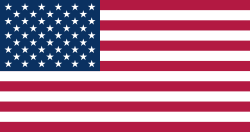World Water Day 2023 – LifeSaver Cubes help displaced communities in Pakistan
Posted 2 years ago
A week from now marks this year’s World Water Day, March 22nd 2023. While it’s fair to say at LifeSaver, everyday is World Water Day, we are grateful that there is a dedicated day, where a focus can be given to the serious and growing issues which result in a lack of safe drinking water for people globally. The statistics remain mind boggling and are disappointingly going in the wrong direction. 1 in 10 people now do not have access to safe drinking water. Furthermore, around 4 billion people experience severe water scarcity during at least one month of the year.
Regrettably, since the last World Water Day, our portable water purifiers were once again called upon to save lives. Last summer, Pakistan experienced severe flooding as a result of monsoon rainfall at levels nearly 3 times higher than a typical year. Nearly 8 million people have been displaced, in need of shelter, food, clean water, and toilet facilities. As part of the UK governments’ aid package, 4,850 LifeSaver Cubes were flown out and delivered to the World Food Programme who were coordinating efforts on the ground. The WFP then gifted the Cubes to Concern Worldwide for distribution to the most remote, displaced communities. More LifeSaver Cubes were sent via our partner RoseAce and the Rotary Club. The recipients of all these LifeSaver Cubes will now be able to turn the contaminated flood water surrounding them, into clean, purified water for cooking, washing and drinking.
There has been a noticeable increase in the frequency and intensity of natural disasters in recent years, which is believed to be largely due to climate change. There is a pressing need for greater preparedness ahead of such disasters, as unfortunately, there will be a next time. LifeSaver would urge nations and non-governmental organisations to take proactive not reactive measures. Stockpiling relevant technologies in meaningful quantities and storing them in areas prone to such natural disasters, so that they might be distributed to more people, with more immediate effect.
Natural disasters have a significant impact on water sanitation, which leads to serious health problems for affected communities. During a natural disaster, such as a hurricane, flood, or earthquake, water treatment and distribution infrastructure can be damaged, contaminated or disrupted. This results in the spread of life-threatening waterborne illnesses, caused by bacteria, viruses, and parasites that thrive in such conditions.
To mitigate the impact of natural disasters on water sanitation, disaster preparedness and response plans are crucial. This includes having backup power sources and communication systems in place, as well as having emergency supplies for water treatment, such as water purification devices. Additionally, educating people about the importance of water safety and hygiene can help reduce the spread of waterborne illnesses during natural disasters.
Back to News
